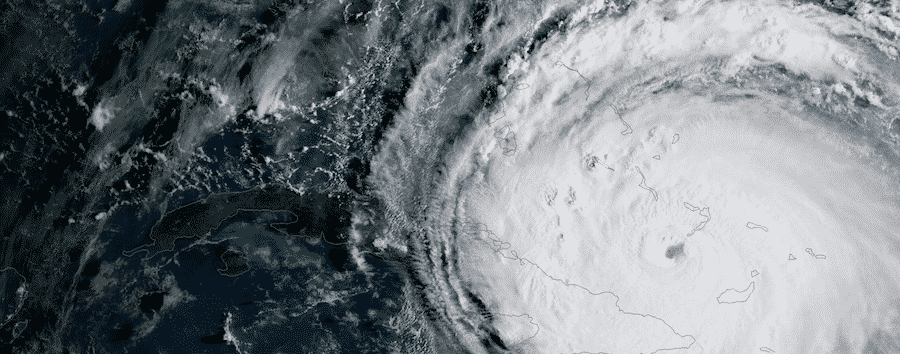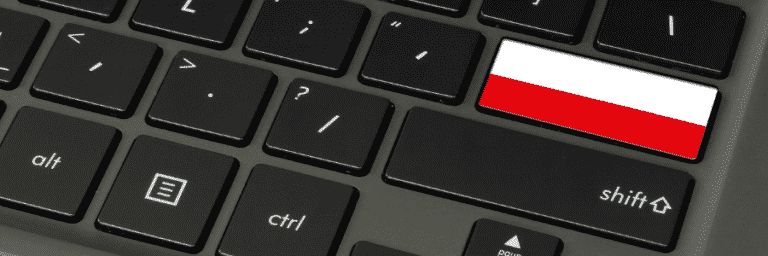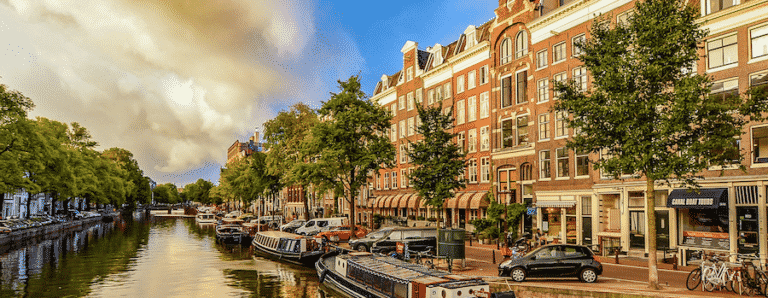Antigua and Barbuda Hurricane Recovery Aid Could Come from a Surprising Source: An Old Online Gambling Dispute with the United States

Hurricane Irma tore through Antigua and Barbuda in September, destroying or damaging 95% of structures on Barbuda and causing an estimated $250 million in damage across both islands. The saga continues more than a month later with recovery efforts underway and local officials scrambling for recovery funds.
The island nation was lucky to escape with only a handful of fatalities, but now Antigua and Barbuda must find a way to deal with the aftermath. In the days after the storm, Prime Minister Gaston Browne explained the full extent of rebuilding:
“…we’re talking about rebuilding everything, all its institutions, the infrastructure for telecommunications, the roads… it’s terrible.” The nation is also in need of other life-sustaining basics including “drinking water, medicine, food, the basic necessities.”
Antigua and Barbuda was lucky to escape with only a handful of fatalities, but the financial toll has overwhelmed the tiny nation whose GDP is shy of just $1.5 billion. With latest recovery estimates approaching $250 million, the cost of rebuilding exceeds 15% of Antigua and Barbuda’s GDP. Quite simply, the nation cannot afford to rebuild effectively without a large influx of cash.
Gaston Browne has been toying with ideas to alleviate the cost and raise funds, but has resorted mostly to borrowing money at commercial rates to pay for immediate humanitarian needs. Gordon Browne appears to be leaving no avenue unexplored in the search for recovery funds.
This includes calling on the United States to pay a long-overdue settlement awarded to Antigua and Barbuda over a dispute between the two nations involving online gambling. Now, more than ever, the Prime Minster says, this money is needed by the tiny island nation struggling to recover from the effects of the most powerful hurricane the Atlantic Ocean has ever seen.
Prime Minister Browne brought up the long-running trade dispute last month in a speech given at the United Nations General Assembly. There, he reminded the United States and UN members of a World Trade Organization (WTO) ruling which states the United States owes Antigua and Barbuda more than $270 million for violations of international trade obligations related to online gambling.
Coincidentally, that number is almost exactly how much it has been estimated is required to rebuild Antigua and Barbuda after Hurricane Irma. It is in this way that Antigua and Barbuda has turned to a most unlikely source of recovery funds: by settling an old online gambling dispute with the richest country in the world.
David vs. Goliath: The USA vs. Antigua and Barbuda
To understand what Gordon Browne is referring to, we must go back in time. The first online casinos appeared in 1994 and the first sports bet ever placed online happed in 1996. Back then, online gambling was a very different industry compared to what we know today. Gaming laws were outdated in pretty much every country in the world while online gambling lived on the cutting edge of internet technology.
There was a lack of legal clarity at the time, but worries that old laws (such as the Wire Act in the United States) could be used to put an end to the lucrative business of online gambling led many betting sites to locate themselves to small countries such as Costa Rica and Antigua and Barbuda. Those small countries welcomed the revenue, did not impose overly burdensome regulations and did not ask too many questions about the legal implications of a burgeoning online gaming industry.
Antigua and Barbuda was especially attractive as a base of operations for betting sites due to a developed internet structure, political stability and lax banking regulations. At its peak, the online betting industry in Antigua was said to employ roughly 4,000 people and generate something in the neighborhood of $3.4 billion in annual revenue. Business was good.
It is believed that a majority of the revenue derived from online gambling operations in Antigua and Barbuda came from customers located in the United States. In those early years, there were no laws specifically addressing online betting in the United States.
However, lawmakers in the US did not view online gambling favorably. It did not take long for the US to wake up and begin cracking down on online gambling. Often relying on a questionable interpretation of the federal Wire Act, the US began a systematic campaign of eradicating online betting.
The United States made its first move in 1998 by arresting 14 people associated with online sports betting operations located in the Caribbean and Central America. The US alleged that those people were operating in violation of the federal Wire Act by taking wagers online. At that time, the internet was largely based on telephone lines and that was the basis for the US invoking the Wire Act.
WTO Ruling: US Owes Antigua & Barbuda $21 Million Per Year
As the US continued its persecution of overseas gambling operations who were acting legally in their home nations, Antigua and Barbuda’s fledgling gambling industry suffered. In 2003, Antigua and Barbuda filed the first paperwork necessary to petition the World Trade Organization to look into the matter and find a resolution.
The basis for Antigua and Barbuda’s complaint was that US actions violated US commitments under the General Agreement on Trade in Services (GATS). In short, Antigua and Barbuda pointed out that federal, state and local governments in the US were interfering in legal online betting services abroad while simultaneously permitting online horse racing betting back home.
In 2004, the WTO ruled in favor of Antigua and Barbuda. The United States contested the decision and subsequently lost three appeals. Each time, the WTO upheld Antigua and Barbuda’s complaint. Ultimately, the WTO ruled that the damage caused by US actions were worth $21 million per year.
The United States refused to change its stance to become compliant with the WTO ruling and also refused to pay up. The WTO eventually gave Antigua and Barbuda a backup measure to regain some of what was lost: permission to violate US copyright laws to a tune of up to $21 million per year.
Antigua and Barbuda never took up the offer, citing fears of economic retaliation and even more courtroom drama in attempting to determine the value of each copyright violation. Instead, Antigua and Barbuda has worked ever since to make peace with the US and come to a reasonable resolution.
The US never budged. Now, 13 years later, the total amount of damages owed to Antigua and Barbuda exceeds $270 million. That brings us up to the current day.
The Prime Minister’s speech last month laid forth a simple case for the US to finally pay what is due as Antigua and Barbuda struggle to recover from the devastating hurricane. In his speech, Gaston Browne began with a description of the utter devastation his nation suffered, describing a lack of running water, no electricity, no potable water and more.
With recovery costs estimated to top $250 million, the Prime Minister called on the international community to assist and for the US specifically to finally get around to paying back that $270 million it owes. The Prime Minister also noted that over the last 13 years during which the US has refused to pay, the US has enjoyed a trade surplus with Antigua and Barbuda of over $2 billion.
Gaston Browne also said that the US paying back now, at this time when it is most needed, would barely even account for a single year’s worth of that trade surplus, but it would go far to help tiny Antigua and Barbuda recover from what has now become a humanitarian disaster.
Now, we wait for the US response. Considering the US hasn’t budged in 13 years, I wouldn’t hold my breath that anything will change now. It is true attitudes towards online gambling are changing in the US, but these things move slowly. In the meantime, Antigua and Barbuda desperately need any aid they can get – and even that much has proven difficult.
You can see the full speech below:

Wes Burns has more than a decade’s worth of experience as a writer, researcher, and analyst in the legal online betting industry and is co-founder of OnlineBettingSites.com. Wes approaches his work from the viewpoint of players.



